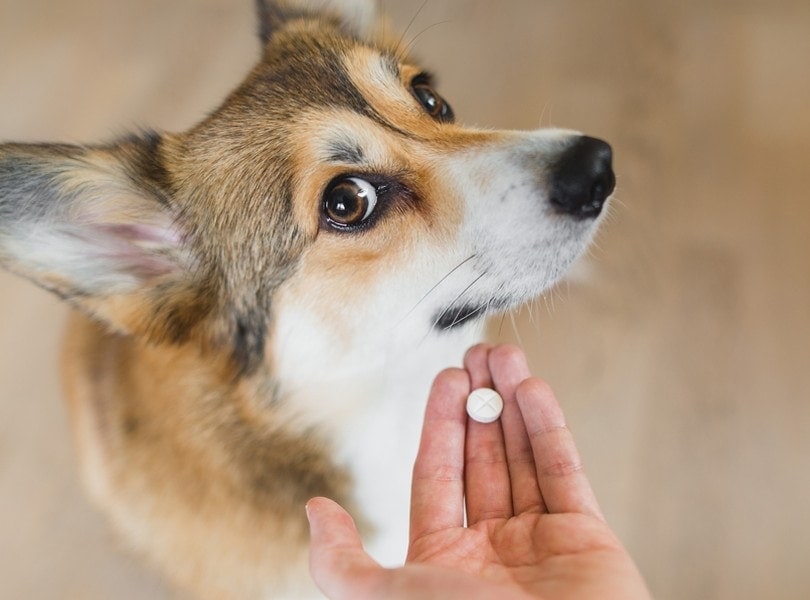Why Is My Wheaten Terrier Being So Aggressive? 10 Common Reasons
Updated on
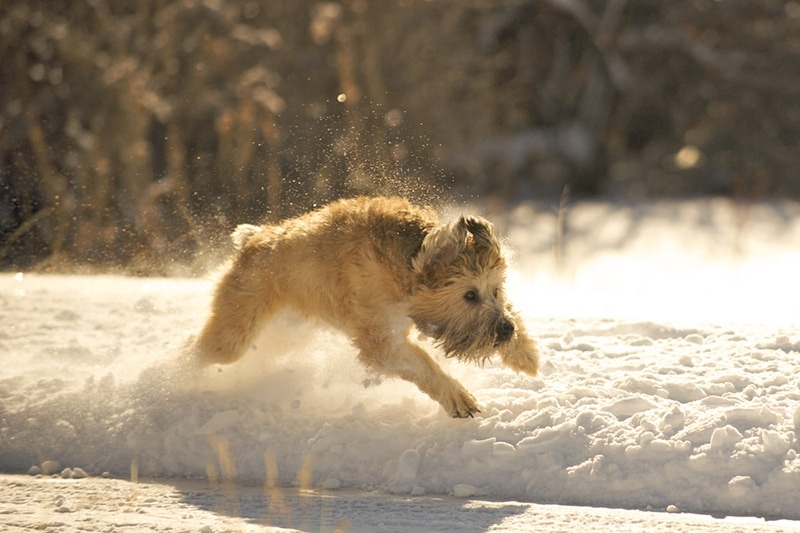
Click to Skip Ahead
There are many different reasons your Wheaten Terrier may be being aggressive. Typically, these are no different from the reasons that make other dogs aggressive. Figuring out why your dog is aggressive is the first step to correcting the situation.
In this article, we’ll look at some of the most common reasons your dog may be displaying aggression.
The 10 Reasons Why Your Wheaten Terrier May Be Acting Aggressive
1. Fear or Anxiety
Dogs that feel threatened or anxious are likely to be aggressive. It’s important to look at what triggers your dog’s fear or anxiety and work to desensitize them to these stimuli. When done properly, this can prevent aggression.
2. Territorial Behavior
Some dogs can be possessive of their space or belongings, which might lead to aggression when someone approaches their territory or possessions. Occasionally, dogs can become more or less aggressive due to hormonal reasons.
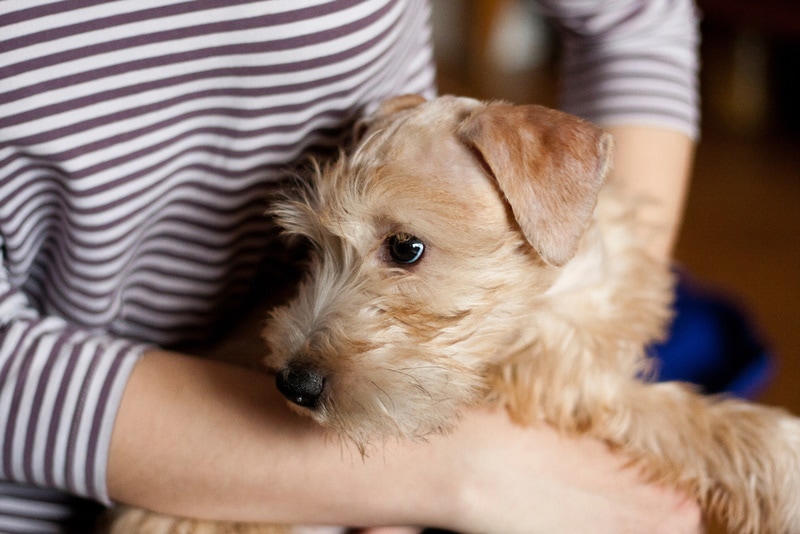
3. Socialization Issues
Insufficient socialization during a dog’s critical developmental stages can lead to aggression toward other dogs or people. Proper socialization is vital for a dog’s overall well-being.
4. Medical Issues
Pain or discomfort due to an underlying health problem could cause a dog to become irritable and aggressive. We highly recommend getting your dog checked out at the vet after any sudden aggression.
5. Resource Guarding
Some dogs will guard their “resources” against anything they perceive as a threat, including food, toys, or even people. Training is necessary to address this in most cases.
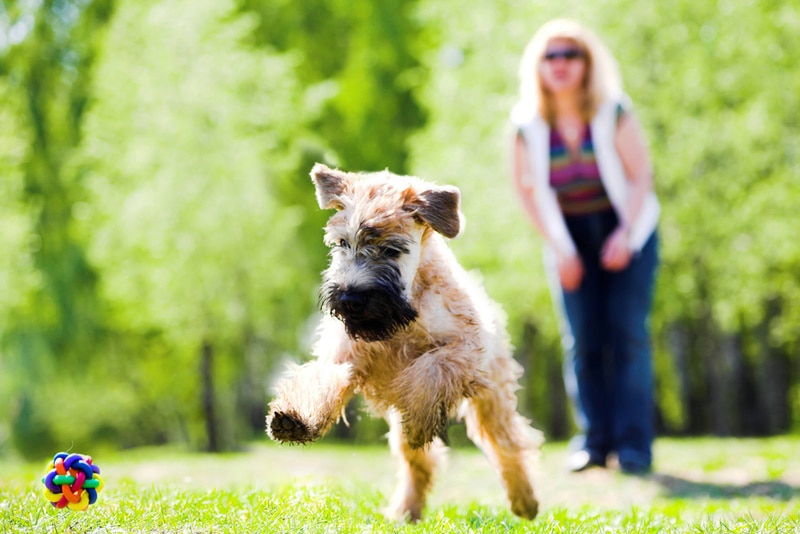
6. Lack of Socialization
Introducing your dog to a wide variety of different people, places, and animals is essential for them to grow into a well-behaved dog. When this isn’t done properly, they can become aggressive.
7. Genetics
In some cases, your dog may have a genetic tendency towards certain types of aggression. While Wheaten Terriers typically don’t have genetic temperament issues, different dogs do vary. It’s important to get your dog from a quality breeder to lower the chance of this occurring.
8. Hormonal Changes
Unspayed or unneutered dogs may display aggression due to hormonal changes. Getting your dog fixed can help prevent these issues from occurring.
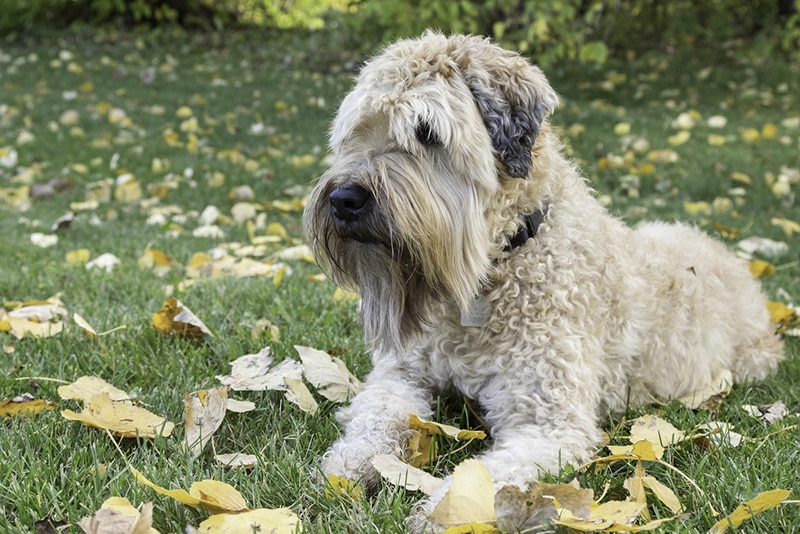
9. Environmental Factors
Changes in the dog’s environment, such as a move to a new home, can cause stress and behavioral issues. Dogs can be sensitive to things that we may not even consider stressful. Therefore, it’s important to consider how your dog may see things.
10. Previous Trauma
If your canine has had a negative experience in the past, they may suddenly become aggressive in similar circumstances.
It’s important to address your dog’s aggression promptly. Sometimes, at-home training and extra socialization are enough to eliminate behavioral issues. However, other times, you may need to call a professional dog trainer or behaviorist to help.
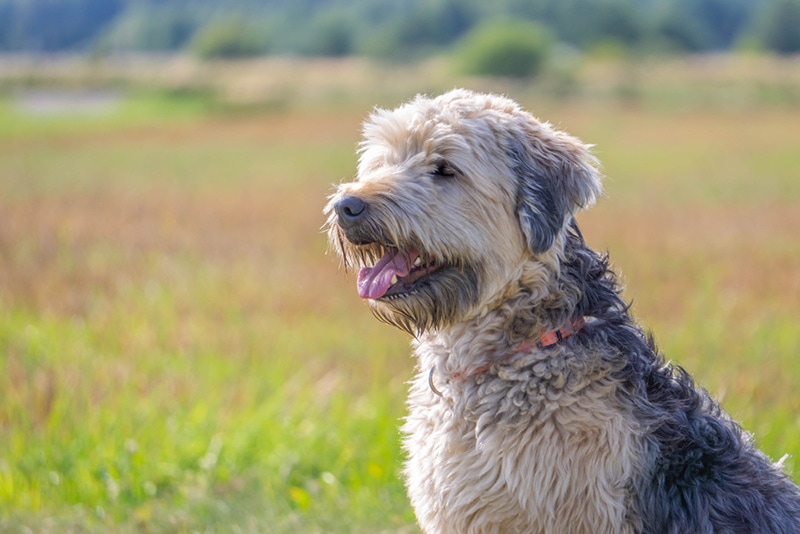
What is Rage Syndrome in Wheaten Terriers?
Rage syndrome is another potential cause of sudden aggression in dogs. This condition is also known as “Sudden Onset Aggression” or “Cocker Rage Syndrome.” Simply put, this behavioral disorder is characterized by sudden and seemingly unprovoked episodes of intense aggression. During these episodes, the dogs may growl, snap, or bite without any apparent reason. Often, these episodes are brief, but they can be very intense and dangerous.
This condition is exceedingly rare and not well understood. It has been reported in several dog breeds, including the Wheaten Terrier. However, it is more commonly associated with the Cocker Spaniel breed. As you might imagine, dogs with this condition can be dangerous, as they may attack without any warning.
The exact cause of this condition isn’t known. There are probably many factors at play, including genetics. Some experts believe that it may be linked to a genetic predisposition or a seizure disorder, while others suggest that it could be related to certain triggers or stimuli that are not immediately apparent to humans. Often, diagnosing this problem is difficult, as you cannot “bring on” an episode at will. Therefore, vets have to listen to the description of the episode and rule out other causes of aggression, such as pain and other neurological conditions.
Currently, there is no cure for this condition. However, there are many ways that treatment may be pursued. For instance, medication and behavioral modification techniques may be utilized. Strict management is required, as it is impossible to tell when the animal could become aggressive again. In some severe cases, euthanasia may be considered as a last resort if the dog poses a significant danger to people or other animals.
It is important to understand that this condition is very rare, so the chance of a Wheaten Terrier developing it is low. If you suspect that your dog may have this condition, be sure to speak to your vet right away.

How Do I Stop My Wheaten Terrier from Being Aggressive?
Addressing aggression requires a systematic approach and will depend on the exact cause of your dog’s aggression. You should preferably speak to your vet whenever your dog suddenly becomes aggressive, as there are many health conditions that can cause aggression. Some of these are neurological, but anything that causes pain can also make a dog more aggressive.
In severe cases, your canine may need a behavioral assessment, which helps you understand the triggers, context, and severity of the aggression. This assessment helps you figure out exactly what is causing the aggression so that you can fix it.
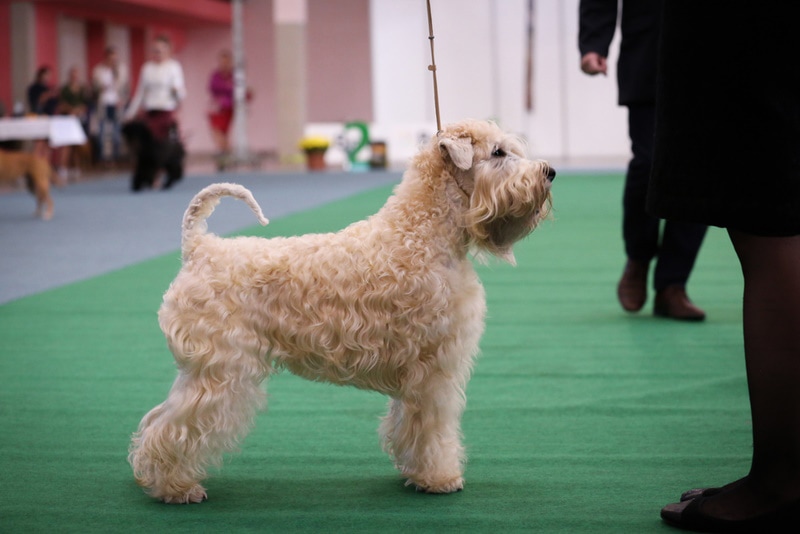
Training & Socialization
Proper training and socialization are crucial for any dog. Enroll your terrier in obedience classes and expose them to various people, animals, and environments to build their confidence and reduce fear-based aggression. It’s best if this occurs at a young age, but you can start socialization when your dog is older, as well.
If your dog is too aggressive to be around other people or animals, consider private classes. You can work on getting your dog used to other people in these classes, slowly building up to group classes for even more socialization. Desensitization is necessary if your dog is scared and aggressive towards a particular trigger. This involves slowly introducing your dog to the trigger until they can be around it without becoming aggressive. Often, this sort of training is long and challenging, but it is necessary for your dog to become more stable.
Of course, you should aim to avoid your dog’s triggers, as well. However, this isn’t always possible or practical, and that is where desensitization comes in handy.
Conclusion
Most Wheaten Terriers are not aggressive. However, all dogs vary, and it is completely possible for a dog from any breed to be aggressive. Therefore, it is vital to socialize and train your dog well from a young age. These processes help your dog become well-behaved and non-aggressive.
However, even if you do these things well, there is a chance your dog will still be aggressive. Neurological conditions like rage syndrome can cause sudden aggression, which can make your terrier potentially dangerous.
Usually, socialization and training are the key to making an aggressive dog well-behaved. However, they may also need underlying health conditions treated.
- See Also: How Much Do Wheaten Terriers Shed?
Featured Image Credit: Image Credit: Jeff Smith Perspectives, Shutterstock


